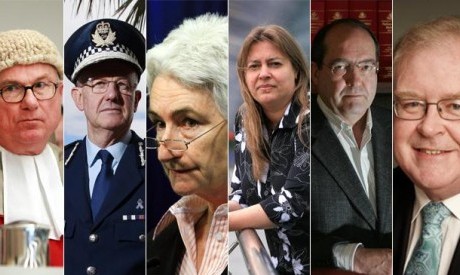The awful record of the institutional Catholic church’s leadership in dealing with the scandal of clerical sex abuse of minors has clearly, and rightly, been a trigger for the federal government’s Royal Commission into sexual abuse of children in Australia.
This is a record that has already prompted other inquiries here and overseas.
It would indeed be wrong to ignore the failings of other churches and secular institutions as recent events in Britain have revealed, most notably, the lax performance of the BBC in the scandalous behaviour of their pin-up star, Jimmy Savile over decades of impunity in abusing children.
The tentacles of this scandal have reached to a variety of other secular institutions, including children’s homes and hospitals. The terms of the Australian inquiry , as announced by the federal government, have reasonably addressed such concerns by including institutions other than the Catholic Church in the Commission’s remit. Closed institutional power over the vulnerable, wherever it exists, is a key factor in the perpetuation of abusive conditions.
Even so, the Catholic Church has and continues to have major problems dealing with this issue of clerical sexual abuse, and virtually every day produces new evidence in a variety of countries, not only of abuse by clergy, but of negligence, cover-up, concealment, and deceit that have contributed to dreadful injustice to victims.
Significantly, these problems have combined with other tensions and stresses within the church to expose an even deeper crisis in the church’s structures and doctrines, and have contributed to a broad disaffection of laity and significant sections of the clergy with the church’s leadership and its exercise of authority. In Ireland, for example, the previous widespread attitudes of respect and deference towards church authorities and institutions have almost entirely disappeared, conspicuously amongst the young, but even dramatically amongst the older generations.
The sex abuse crisis has crystallised for many Catholics an alienation from church structures and authority that began with the papal encyclical Humanae Vitae of 1968 reasserting the standard ban on artificial contraception. Continue reading
Sources
- Tony Coady in The Conversation
- Image: The Australian
Tony Coady is Professor of Philosophy at the University of Melbourne. He is a Catholic.
